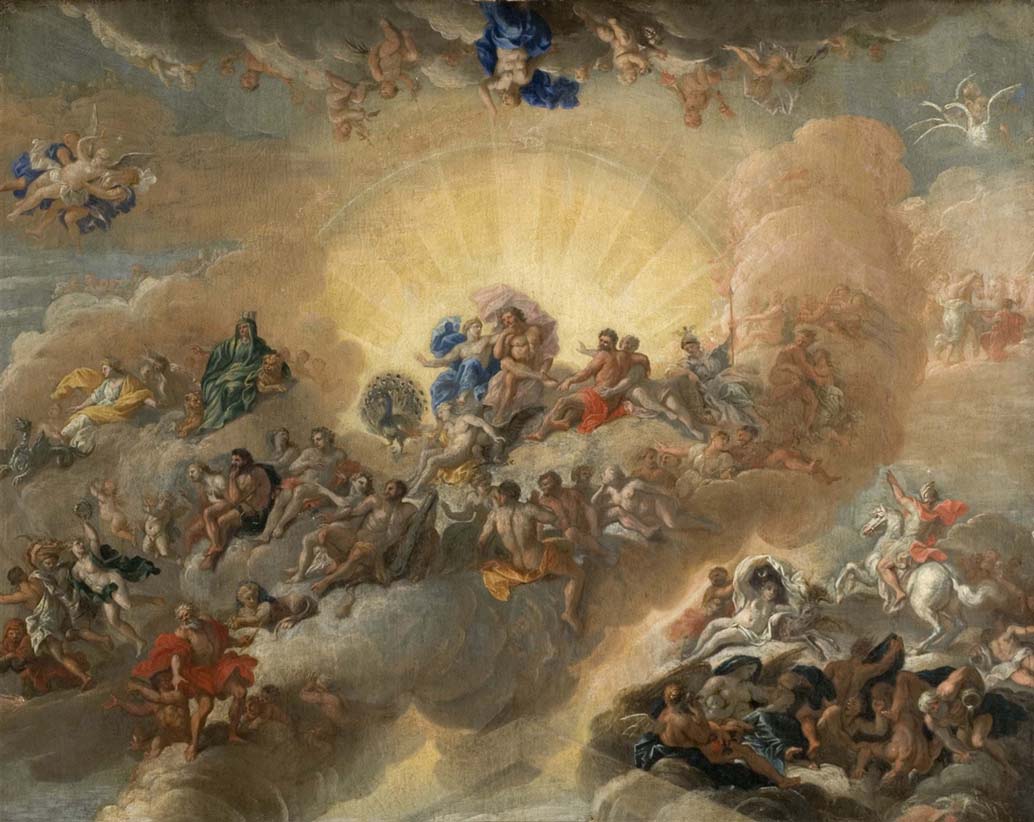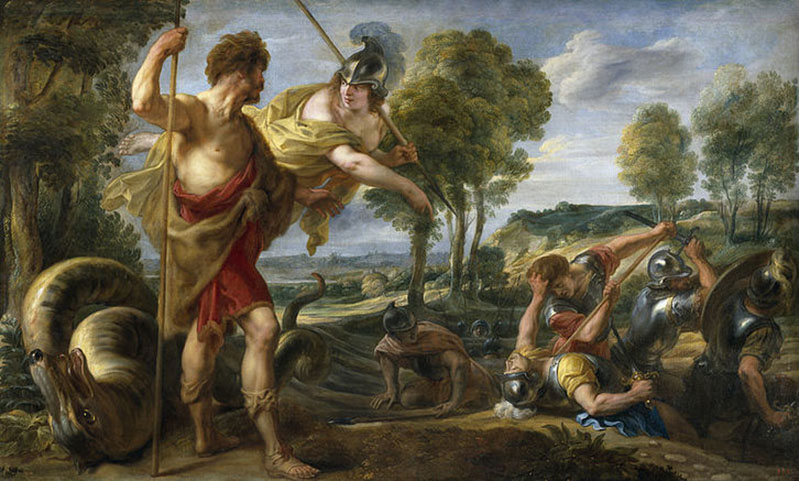Thersander
Thersander is one of the Achaean leaders talked of by Homer in the Iliad, Thersander though, was also a king of Thebes in Greek mythology, as well as being one of the Epigoni.
THERSANDER SON OF POLYNICES
Thersander was the son of Polynices, son of Oedipus, and Argea, daughter of Adrastus.
Thersander was born in exile, away from Thebes, for although Polynices was the rightful co-ruler of Thebes, his brother, Eteocles, decided to renege on the promise of co-ruling, and refused to hand the throne to Polynices at the given time. This resulted in the events collectively told in the tale of the Seven Against Thebes
Polynices raised an army with the help of his father in law, Adrastus, but the war with Thebes did not result in victory, for although Polynices killed Eteocles, Polynices was also killed.
Thus Thersander lost his father whilst still a babe.
THERSANDER THE EPIGONI
Years later, when Thersander was in adulthood, Thersander would attempt to do what his father had been unable to do, and so he raised a new army, led by the Epigoni, the sons of the Seven Against Thebes.
A prophecy had been made that if Alcmaeon, son of Amphiaraus was leader of the Epigoni, then they would triumph, but with Alcmaeon reluctant to join the army, Thersander bribed Alcmaeon’s mother, Eriphyle, to convince him.
The bribe offered by Thersander was the legendary robe of Harmonia, just as Thersander’s father, Polynices, had bribed her a generation before, with Harmonia’s necklace, to convince Amphiaraus to fight.
The first major fight for the Epigoni took place at Glisas, where Laodamas, Thersander’s cousin and king of Thebes, was killed by Alcmaeon.
The loss of Laodamas saw the Thebans flee from their city, leaving the gates open and the city undefended.
The surviving Epigoni took their spoils of war, and Thersander was proclaimed the new king of Thebes.
THERSANDER KING OF THEBES
Thebes now had a new king from the line of Oedipus, and Thersander would find a suitable wife, in the form of Demonassa, daughter of Amphiaraus.
Thersander would thus become father to a son and heir, Tisamenus.
THERSANDER AND THE TROJAN WAR
Another great war was imminent, and when the Trojan prince Paris left Sparta with Helen in tow, an armada was brought together to retrieve her.
Those who had been Suitors of Helen, and had undertaken the Oath of Tyndareus, were duty bound to aide Menelaus in the retrieval of his wife; Thersander though had not been a Suitor of Helen, but nevertheless, when the Achaeans gathered at Aulis, Thersander arrived with 50 ships of Boeotians, each ship containing 120 fighting men.
Thersander was not bound by oath to help in the expedition against Troy, but as King of Thebes, he was perhaps honour bound.
Famously, Protesilaus was the first of the Achaean leaders to die at Troy, but Thersander met his end even before Protesilaus.
The Achaean fleet did not know the way to Troy, and when they came to Mysia they believed that they had found Troy. The Achaean army landed but were met by an army of Mysians led by Telephus, son of Heracles.
In the fight that followed the Achaeans were initially driven back to their ships, and Thersander was killed by Telephus, before the Achaeans realised their mistake.
TISAMENUS SUCEEDS THERSANDER
Thersander’s son, Tisamenus would thus become the new king of Thebes, but Tismenus was too young to become the leader of the Boeotians, and thus Peneleos took charge.
Several ancient sources though name Thersander as one of those Achaean heroes who hid within the belly of the Wooden Horse at the end of the Trojan War, which of course he could not do, if he had died in Mysia.

Sources
Pseudo-Apollodorus, Bibliotheca 3.7.2
Pausanias, Graeciae Descriptio 2.4.3
Pausanias, Graeciae Descriptio 9.34.7
Stephanus of Byzantium s.v. Haliartos, Korōneia
Pausanias, Graeciae Descriptio 10.30.5
Pausanias, Graeciae Descriptio 3.16.6
Quintus Smyrnaeus, Posthomerica 10.30
Pausanias, Graeciae Descriptio 9.36.1
Pseudo-Apollodorus, Bibliotheca 3.7.2
Pindar, Olympian Odes 2.42–45
"Greek Legends and Myths"













